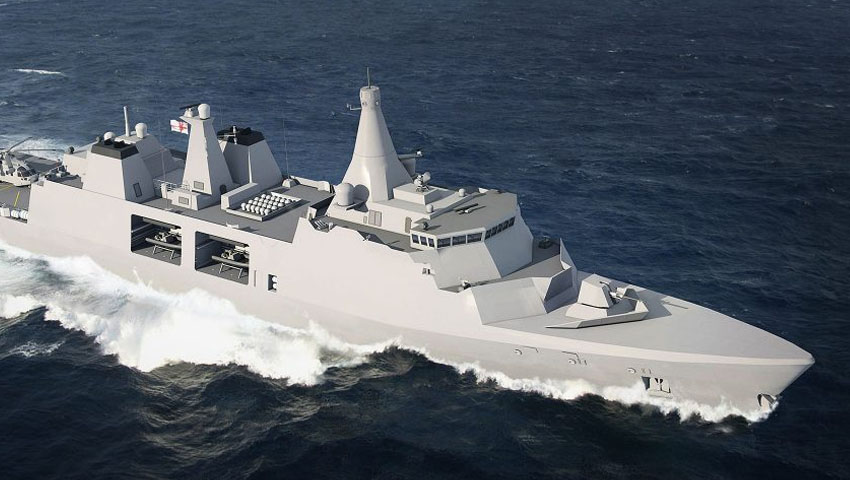The Babcock-led industry consortium for the Royal Navy’s Type 31 frigate has welcomed Rolls-Royce to the fold, with the company to provide MTU propulsion solutions for the fleet.
To continue reading the rest of this article, please log in.
Create free account to get unlimited news articles and more!
Rolls-Royce is to supply complete MTU propulsion systems for five new Type 31 general-purpose frigates for the Royal Navy. In total, the order comprises of 40 engines and generator sets to be used for main propulsion and on-board power generation, the MTU Callosum propulsion control and monitoring system, and Integrated Logistics Support (ILS).
Each new frigate will be powered by four MTU 20V 8000 M71 engines, each delivering over 8,000 kW.
On-board power will be provided on each vessel by four MTU generator sets based on 16V 2000 M41B units, each delivering in excess of 900 kW. In September 2021, Rolls-Royce will deliver the first shipset comprising four main propulsion engines and four generator sets to prime contractor Babcock International Group.
Sean Donaldson, managing director for energy and marine at Babcock International, welcomed the announcement, saying, "We’re delighted to welcome Rolls-Royce with its MTU solutions as a supplier to our Type 31 Programme. Its engines and on-board generator sets are already proving their mettle in numerous comparable vessels worldwide."
Integrated logistics support for propulsion and onboard power systems will ensure efficient and cost-effective maintenance throughout their entire service life. It is expected that the MTU Callosum propulsion control and monitoring system will be officially added to the supply contract very shortly.
Knut Müller, vice president marine and defence at Rolls-Royce business unit power systems, added, "We’re very proud of the fact that Babcock International Group has opted for MTU propulsion and on-board power solutions on this highly significant project. MTU products now feature in almost all current and future projects of the Royal Navy. That is impressive proof of the trust our British partners place in us and of the reliability and flexibility of our products."
The Royal Navy relies on Rolls-Royce propulsion solutions across its surface and submarine fleets. MTU Series 2000, 4000 and 8000 units will feature in future in most Royal Navy warships – in destroyers (Type 45), all frigate classes (Type 23, 26, 31) and submarines (Astute Class).
The UK government has committed to buying at least five of these cutting-edge vessels designed by Babcock for the Royal Navy as part of a £1.25 billion contract, with more expected to be exported to governments around the world. The first British Type 31 ship will be in the water by 2023.
Britain's Type 31 program is expected to support over 2,500 jobs across the UK, with different elements of the frigates being assembled and built at British shipyards. At least 150 of these jobs will be for new technical apprenticeships. The ships will be built exclusively in the UK.
The new Type 31 ships will build on the exporting success of the Type 26 frigates, which were designed in the UK and will soon be sailing as part of the British, Australian and Canadian navies.
The government is also committed to realising the UK’s potential to be a world leader in commercial shipbuilding, particularly for cruise ships, ferries and yachts.
The government has pledged to maintain a surface fleet of at least 19 frigates and destroyers and to grow this fleet in the 2030s. The first batch of five Type 31 frigates will help achieve this, by replacing Type 23 frigates.
At a time where the challenges across the world’s seas are increasing, the Type 31 frigates will enable the UK to undertake more missions such as the interception and disruption of those breaching international maritime law, intelligence collection and protecting commercial shipping.

 Login
Login







